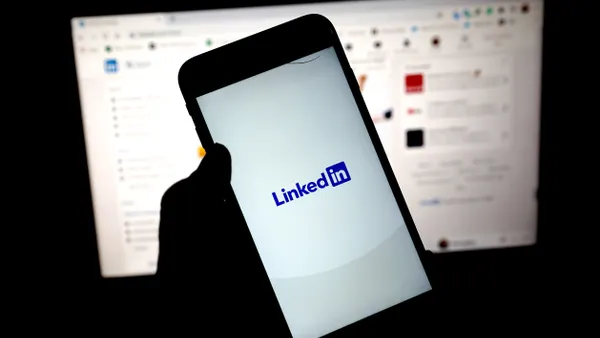Dive Brief:
- Space company Blue Origin, founded by Jeff Bezos, fostered a climate of sexism, sexual harassment, burnout and suppression of dissent and product safety concerns, according to an open letter published Sept. 30 and signed by Alexandra Abrams, Blue Origin's former head of employee communications, along with 20 other current and former employees of the company.
- The letter, more than 2,000 words long, lays out issues former and current employees had with gender bias among senior leaders, including use of condescending language and demeaning behavior toward women. It spotlights the toll Blue Origin took on employees' mental health, including inducing "periods of suicidal thoughts" and feelings of dehumanization. "One senior program leader with decades in the aerospace and defense industry said working at Blue Origin was the worst experience of her life," it reads. The second half of the letter deals mainly with rushed work and employees' safety concerns, drawing a comparison to issues that led to the Challenger explosion. Many of the signatories called these safety concerns "the driving force for coming forward with this essay."
- Blue Origin pushed back against the letter in a statement provided to HR Dive. "Ms. Abrams was dismissed for cause two years ago after repeated warnings for issues involving federal export control regulations," a spokesperson wrote. "Blue Origin has no tolerance for discrimination or harassment of any kind. We provide numerous avenues for employees, including a 24/7 anonymous hotline, and will promptly investigate any new claims of misconduct. We stand by our safety record and believe that New Shepard is the safest space vehicle ever designed or built."
Dive Insight:
With the potential for viral posts on social media and the rapid spread of open letters, companies are finding themselves more accountable to worker satisfaction.
In tech especially, several prominent cases have made news in recent months. When employees of video game publisher Activision Blizzard disagreed with the company's response to a civil suit from California's Department of Fair Employment and Housing, they staged a walkout using the hashtag #ActiBlizzWalkout. More than 2,000 people signed an open letter to company leaders with a set of demands intended to improve working conditions.
The Activision case even drew federal inquiries; last week, the company announced it had settled with the U.S. Equal Employment Opportunity Commission for $18 million.
Apple also attracted negative attention recently with the publication of a series of blog posts called #AppleToo, written by current and former employees. In the posts, workers detail experiences of harassment, discrimination, retaliation, dangerous work conditions and more.
A common thread in all three cases is HR failing employees.
"One senior executive in CEO Bob Smith's loyal inner circle was reported multiple times to Human Resources for sexual harassment," the Blue Origin letter states. "Even so, Smith personally made him a member of the hiring committee for filling a senior HR role in 2019."
Shortly after the Activision Blizzard walkout, HR Dive Reporter Ryan Golden explored how HR staff at the company enabled a "frat boy culture," with "cube crawls" that allowed for inappropriate conduct toward female workers. Recently, the company replaced its chief people officer.
The #AppleToo blogs list a number of poor experiences with members of the company's people team. "The following stories all come from employees who raised concerns with their management and with Apple's HR, the People team," Digest #1 reads. "None of these concerns were acted on or addressed in this process, and in many cases, the employee had to continue workin [sic] in a hostile work environment."
Employees may not always like the results of internal investigations, but HR departments that ignore worker complaints do so to their own detriment. Not only does suppression of employee complaints lead to an internal environment of toxicity and dysfunction, but such actions can also cause the company reputational and legal damage if workers decide to vent to an audience they believe will listen.












